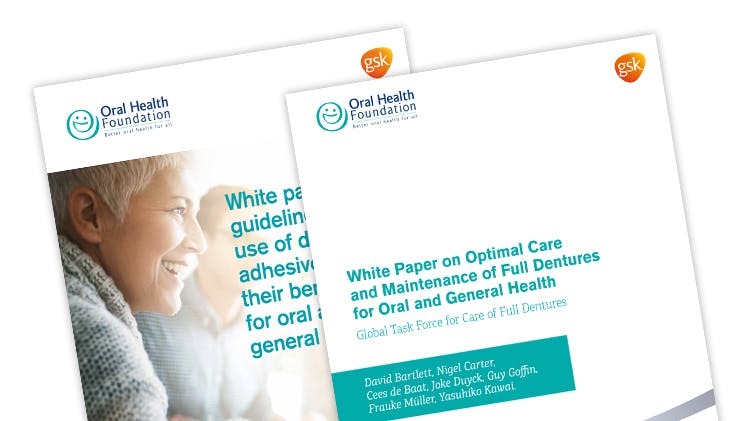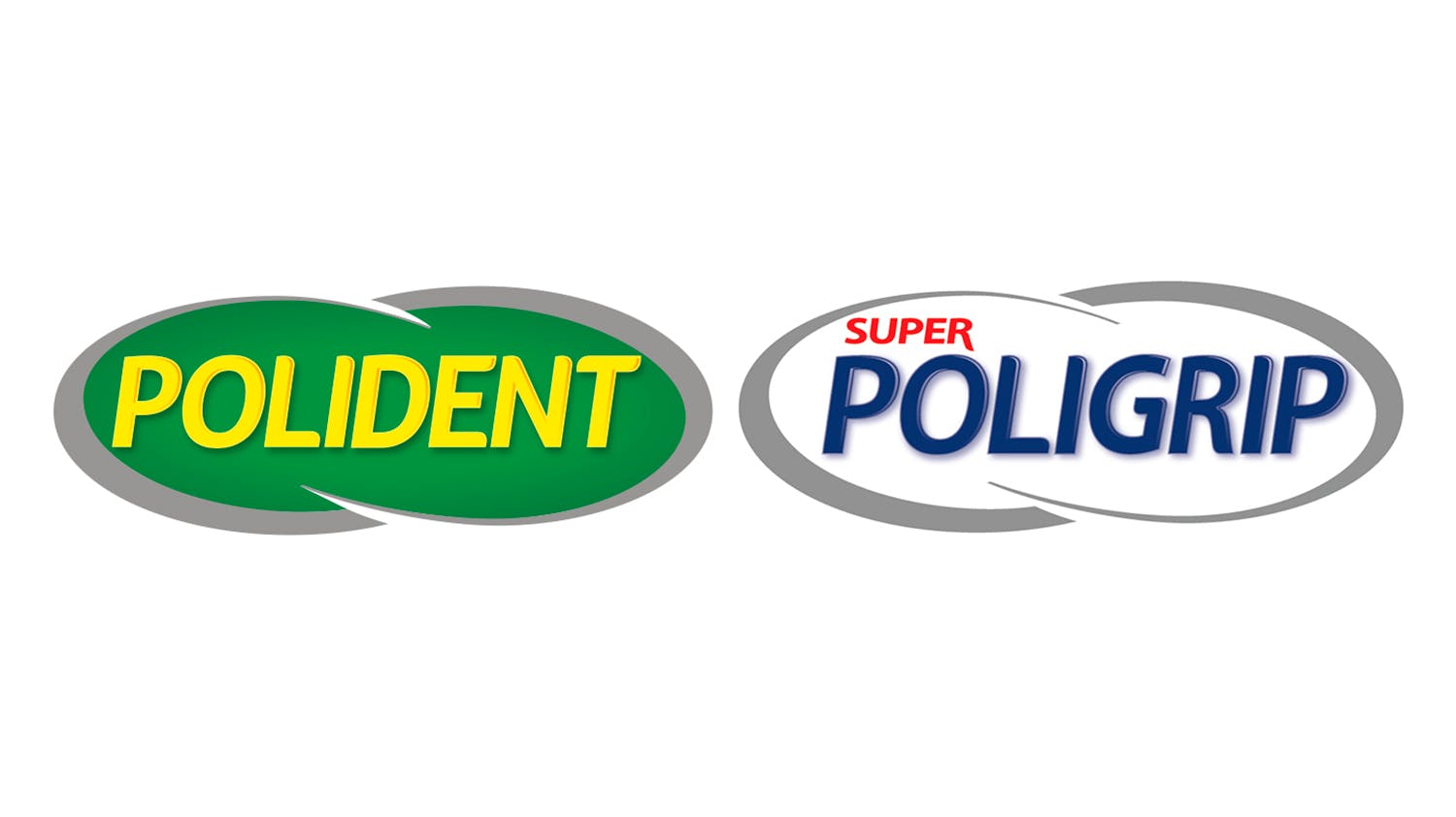Denture Management

Maintaining the Performance of Dentures
There are numerous individual factors influencing how patients maintain their dentures. Patients are recommended to always consult with their dental or healthcare provider. These could be physical, clinical or behavioral, including:
- Oral anatomy – Restrictions in oral anatomy can limit denture retention and stability; such as gradual bone resorption, or available surface area relating to small lower jaw, flat absorbed ridges, or prominent tori1,2
- Xerostomia (dry mouth) – Disrupting normal denture retention due to reduced saliva1,3
- Immediate full dentures – where fit may change over time as bone resorption occurs after tooth extraction4
- Preservation of natural teeth – where excessive functional forces may cause additional tooth mobility or loss5-8
- Patient psychology – how patients adapt to their denture4,9
- Denture hygiene – where the cleaning method or frequency results in poor denture hygiene and risks oral health6,10,11
- Denture stomatitis* – caused by long-term inadequate denture cleaning or wearing dentures overnight12
*Polident not indicated for treatment of stomatitis
Denture adhesives and denture cleansers can help patients maintain denture performance and hygiene
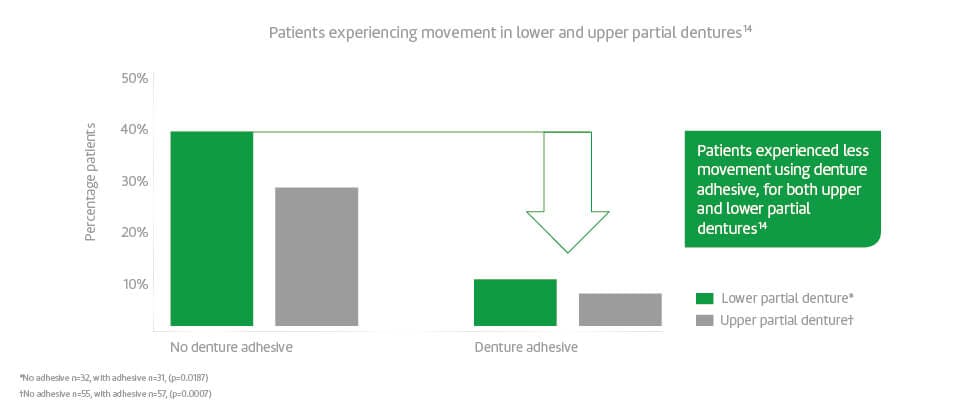
Denture adhesives – helping maintain denture performance[SE1] 13,14
When patients experience individual medical, physical, or psychological factors affecting denture performance, denture adhesives can help by improving retention, stability, and patient perceptions of fit and comfort.1,15
limited oral anatomy,1denture adhesives:
- Can help improve retention in well-fitting dentures*1,15
- Can help improve stability in well-fitting dentures*15
- Helped manage gradual soft and hard tissue changes over time15
- To help increase retention in well-fitting dentures16
- To help increase ability to chew in well-fitting dentures16
*Referenced testing not done on current Poligrip Cushion & Comfort formulation
For patients with immediate full dentures, denture adhesives:
- Help improve retention1,15
- Can improve stability15
- Provided a cushioning effect17
For patient with partial dentures, a denture adhesive can stabilize and secure dentures.13,14
For some patients who need help adapting to their denture, denture adhesives can improve denture retention1,15 and helps seal out irritable food particles,18 helping patients adapt to their denture and improving their experience.
ACP guidelines
“…patient ratings showed that denture adhesives may improve the denture wearer’s perceptions in retention, stability, and quality of life…”15
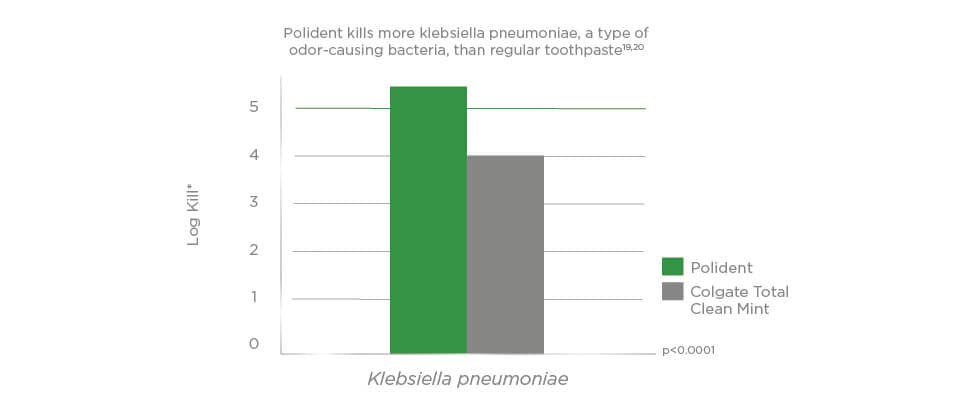
Denture cleansers – helping maintain dentures’ hygienic performance
When patients present with individual medical, physical or psychological factors that affect dentures’ hygienic performance, denture cleansers can help improve denture hygiene.
Patients with poor denture hygiene achieved more effective cleaning when daily brushing was combined with a denture cleanser:
- Significantly larger reduction in plaque21
- Significantly larger reduction in odor causing bacteria,21
Denture cleansers can kill significantly more of the bacteria associated with denture stomatitis** compared with other cleaning agents, such as antimicrobial toothpaste.19,20
*Log kill is calculated as the difference in log scale of microbes initially present and the number of microbes still viable after treatment (contact time as follows: 2 minutes for leading toothpaste, 3 and 5 minutes for Polident).**Polident not indicated for treatment of stomatitis.
ACP guidelines
“Dentures should be cleaned daily by soaking and brushing with an effective, nonabrasive denture cleanser.”15
Continuing Denture Care
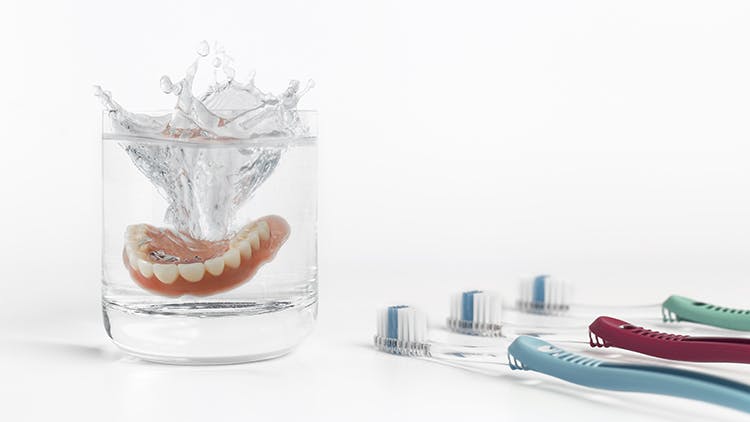
In addition to daily denture care at home, patients need regular professional contact to ensure that their oral health is maintained.22

3 monthly recall during the first year of denture use to reveal the frequency of follow-up needed thereafter.23

6–12-monthly check-ups to detect the presence of early caries or periodontal diseases.24
